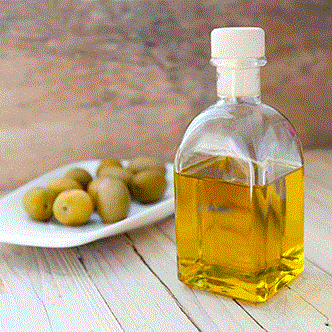
Eating better is an important part of preventing heart disease. That includes a diet rich in vegetables, fruits, legumes, nuts, whole grains, and fish. Current guidelines also suggest that substituting unsaturated fats—like
those found in olive oil—for saturated fats could lower your chance of developing heart disease.
Adding support to that recommendation,
a newly published study tracking the diets of more than 90,000 U.S. adults over 24 years found that olive oil was associated with a lower risk of cardiovascular disease. The research, published in the
Journal of the American College of Cardiology,
also showed that using olive oil instead of margarine, butter, mayonnaise, or dairy fats could help lower risk of heart disease as well.
The analysis included 61,181 women from the Nurses’ Health Study and 31,797 men in the Health
Professionals Follow-Up Study, both of which have tracked the health of U.S. professionals for several decades. Participants were free of heart disease at the start of each study. They completed dietary questionnaires every four years, and outcomes were
tracked from 1990 through 2014.
Individuals who consumed more than half a tablespoon of olive oil per day had a 14% lower risk of cardiovascular disease and an 18% lower risk of coronary heart disease than those who didn’t. There was
no link found between olive oil consumption and stroke risk. In the survey, people used olive oil in salad dressings, added it to bread or other food, or in baking or frying at home.
Also, using olive oil instead of 5 grams per day of
margarine was associated with 6% lower risk of cardiovascular disease, and substituting the same amount of olive oil for dairy fat was associated with a 5% lower risk of cardiovascular disease.
Another element of the study examined biomarkers
in blood samples. Higher olive oil consumption was associated with higher levels of high-density lipoprotein—the good—cholesterol.
“The present work generates new evidence suggesting that replacement of more saturated fats,
such as butter and margarine, with healthy plant-based fats, like olive oil, is beneficial for the primary prevention of CVD,” the authors write. However, they note that margarine used to contain substantial amounts of trans fats, which has changed.
Trans fats have been shown to be harmful and increase risk of heart disease. The U.S. Food and Drug Administration ban on trans fats took effect in 2018.
Extra virgin olive oil may have some properties that help lower the risk of stroke,
according to the authors. It would be worthwhile for follow-up research to examine the associations of specific types of olive oil consumption.
This observational study does not show cause-and-effect relationships. But the findings confirm
existing research that shows healthy fats play a role in preventing heart disease, the authors conclude.